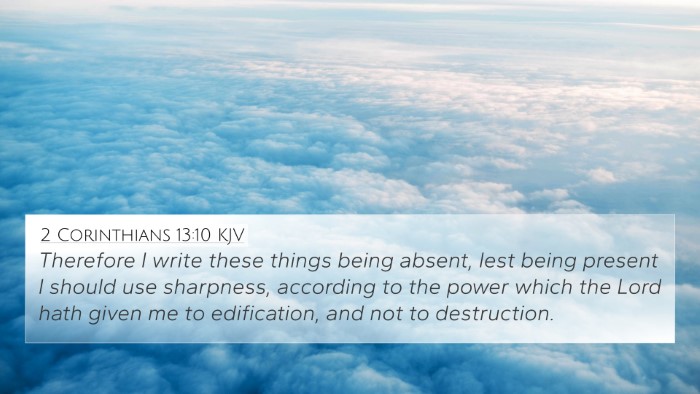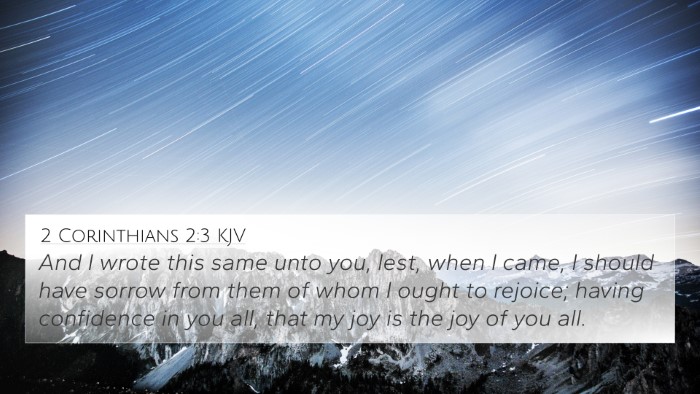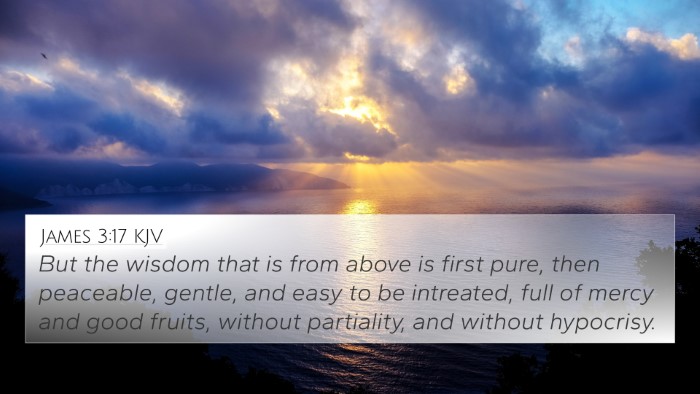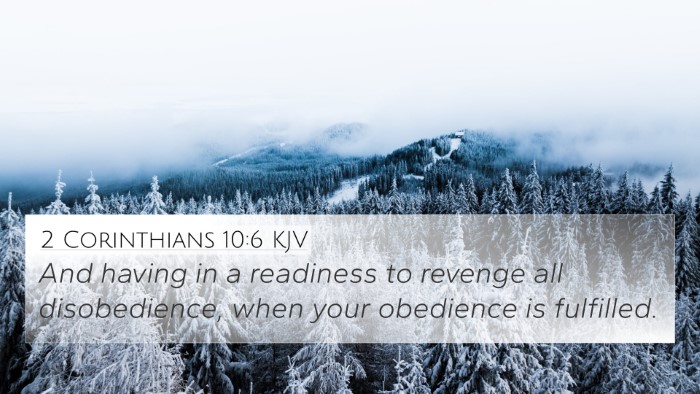This section features a detailed cross-reference designed to enrich your understanding of the Scriptures.
Below, you will find carefully selected verses that echo the themes and teachings related to 1 Corinthians 4:21 KJV. Click on any image to explore detailed analyses of related Bible verses and uncover deeper theological insights.
 2 Corinthians 13:2 (KJV) »
2 Corinthians 13:2 (KJV) »
I told you before, and foretell you, as if I were present, the second time; and being absent now I write to them which heretofore have sinned, and to all other, that, if I come again, I will not spare:
 2 Corinthians 12:20 (KJV) »
2 Corinthians 12:20 (KJV) »
For I fear, lest, when I come, I shall not find you such as I would, and that I shall be found unto you such as ye would not: lest there be debates, envyings, wraths, strifes, backbitings, whisperings, swellings, tumults:
 2 Corinthians 13:10 (KJV) »
2 Corinthians 13:10 (KJV) »
Therefore I write these things being absent, lest being present I should use sharpness, according to the power which the Lord hath given me to edification, and not to destruction.
 2 Corinthians 10:1 (KJV) »
2 Corinthians 10:1 (KJV) »
Now I Paul myself beseech you by the meekness and gentleness of Christ, who in presence am base among you, but being absent am bold toward you:
 2 Corinthians 2:3 (KJV) »
2 Corinthians 2:3 (KJV) »
And I wrote this same unto you, lest, when I came, I should have sorrow from them of whom I ought to rejoice; having confidence in you all, that my joy is the joy of you all.
 1 Corinthians 5:5 (KJV) »
1 Corinthians 5:5 (KJV) »
To deliver such an one unto Satan for the destruction of the flesh, that the spirit may be saved in the day of the Lord Jesus.
 2 Corinthians 10:8 (KJV) »
2 Corinthians 10:8 (KJV) »
For though I should boast somewhat more of our authority, which the Lord hath given us for edification, and not for your destruction, I should not be ashamed:
 2 Corinthians 3:10 (KJV) »
2 Corinthians 3:10 (KJV) »
For even that which was made glorious had no glory in this respect, by reason of the glory that excelleth.
 James 3:17 (KJV) »
James 3:17 (KJV) »
But the wisdom that is from above is first pure, then peaceable, gentle, and easy to be intreated, full of mercy and good fruits, without partiality, and without hypocrisy.















